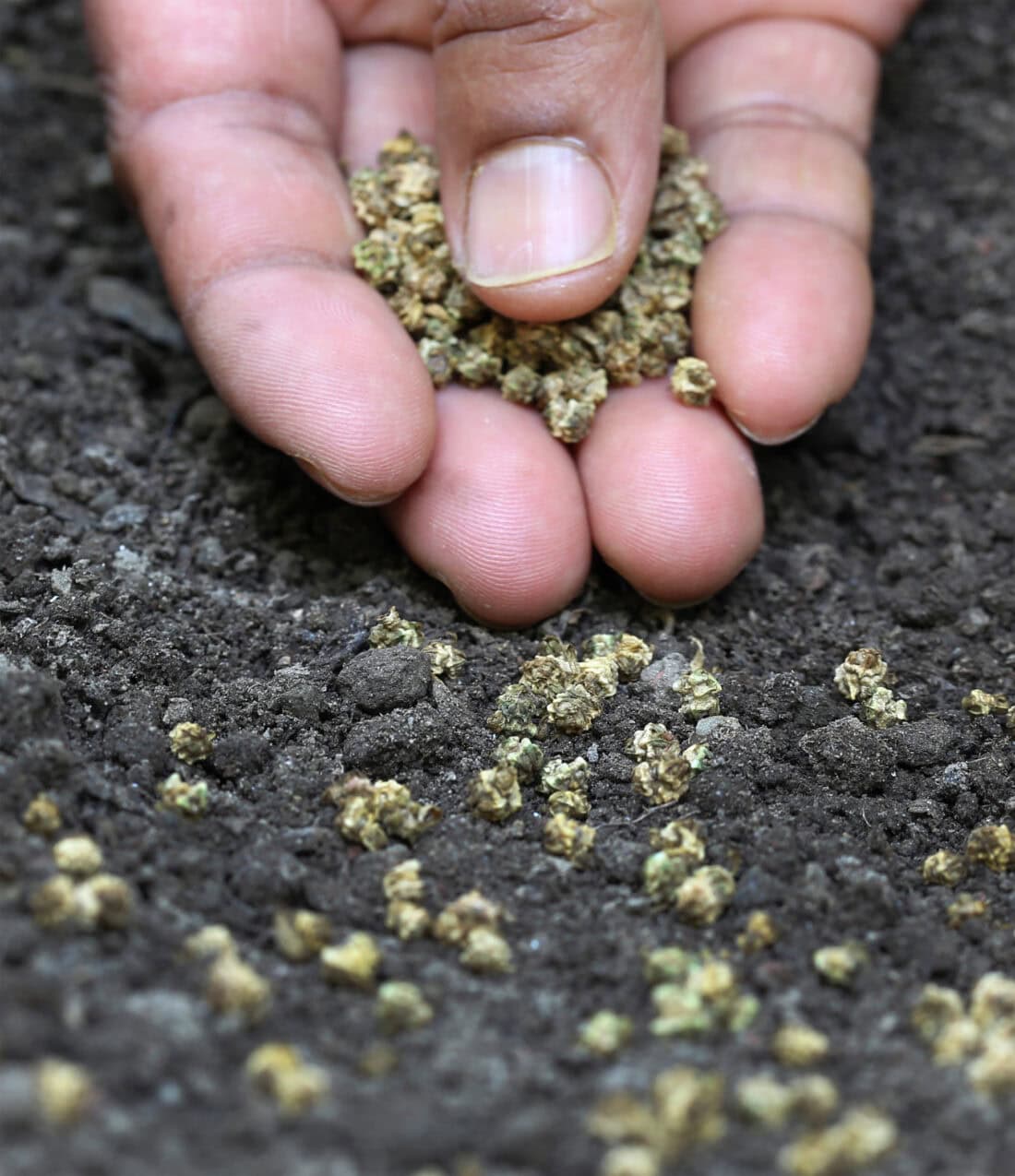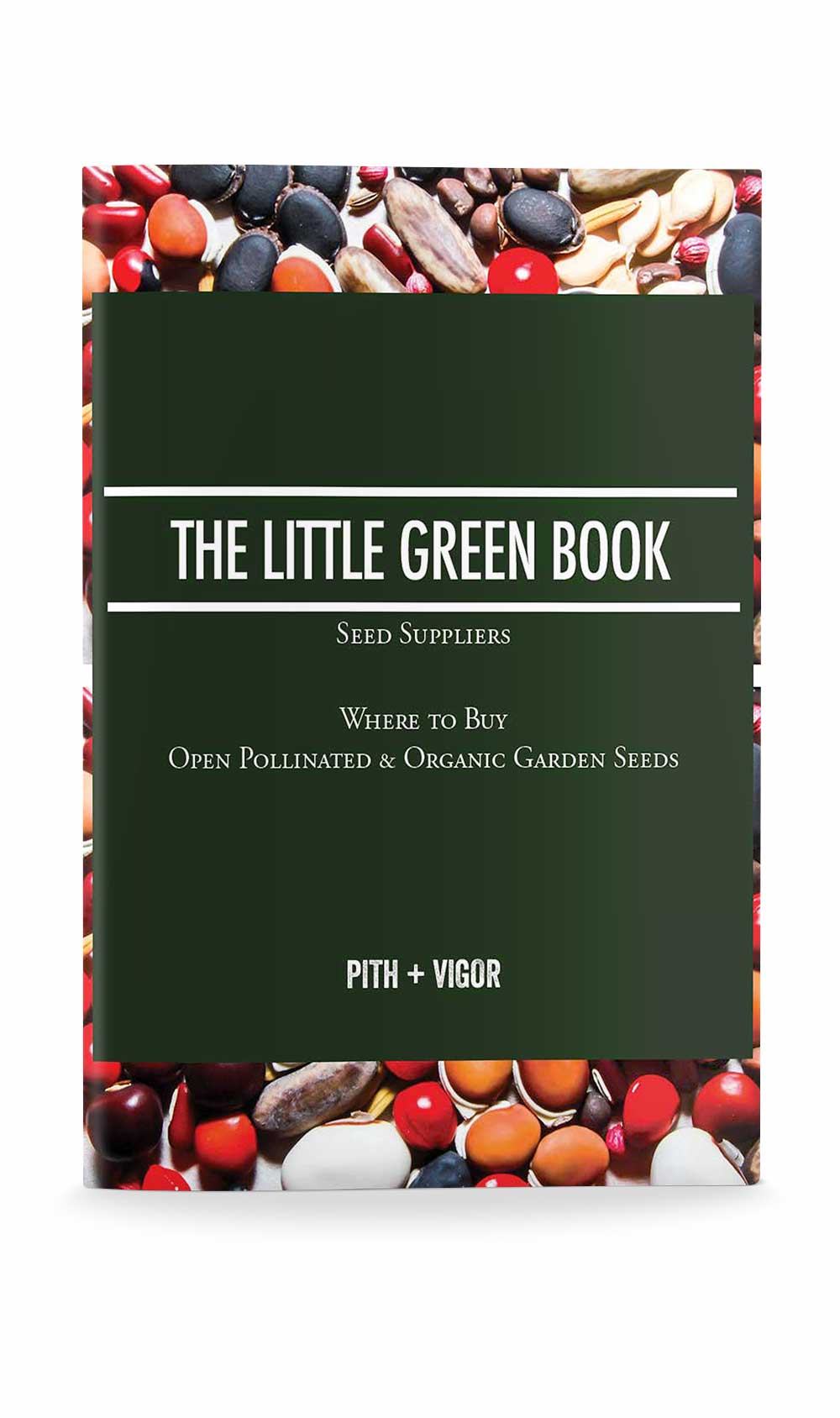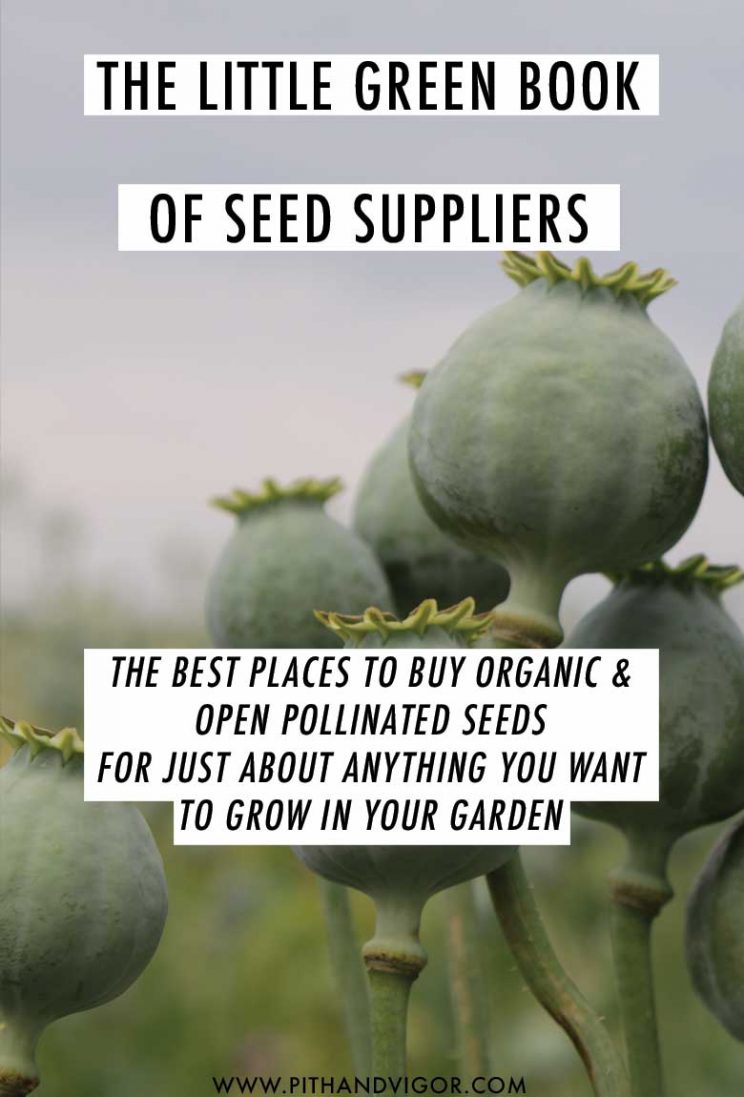Do you find the terms associated with seeds a little confusing? What do open-pollinated, hybrid, heirloom, and organic mean, and why does anyone care?
Let me start by saying that there is absolutely nothing wrong with any seed choice you make. However, you might find you have a few preferences if you understand what these terms mean.
What are Open-pollinated seeds? What does open pollinated mean?
Open-pollinated means that the seeds were pollinated naturally. Insects, wind, birds, and even human hands can all help to pollinate plants naturally. So long as pollination occurs between plants of the same variety, the seeds that result from open-pollinated plants will produce offspring that is like the parent (i.e., the plant remains true-to-type). Open pollination allows for genetic diversity because of natural mutations, adaptation, and natural selection that occurs with time, and open-pollinated plants are stable and good for growers who want to collect seeds and encourage a natural process of seed and plant adaptation.
What are Heirloom Seeds? and
Heirloom seeds are, by definition, open-pollinated. The term ‘heirloom’ typically refers to the fact that a plant has a known history. It was passed down across generations, in communities or families. Heirlooms have a story and a sense of history – the term is romantic and not scientific. Lots of people think of Heirlooms as plants that are older than 50-ish years old (I guess old enough that your grandparents might have planted them?) or perhaps more scientifically based – you might think of heirlooms as varieties that trace their lineage to pre-second world war (which is just prior to a more widespread acceptance of hybrids).
Plants like rhubarb, garlic, and asparagus are slight exceptions to this because they are usually vegetatively propagated.
What are Seed hybrids and Hybridization?
Hybridization means that the seed was created by crossing two different species of plant. This can happen naturally – but for commercial purposes, it is generally the result of humans purposely breeding plants for particular desirable traits. Hybridized seeds tend to grow better and have higher yields because they were specifically bred to have these characteristics.

So, what is wrong with hybrids?
NOTHING – but if you want to collect seeds and replant the next year (without having to go back to the supplier and re-buy the seeds), you will not be successful. The seeds that you collect from hybrids will not breed true-to-type. The second-generation plants from hybrids will not have the same traits as their parent, and they often lack the same vigor. Hybridized characteristics can however stabilize in a plant population over time if there is a concerted effort to consistently select and cross plants over many generations (of the plant). (We call this forced natural selection). If a forced natural selection system is set up (which is what breeders do), then hybridized traits can normalize and become common in a plant population. But this takes time (years) and is the result of a lot of work and consistent selection.
I plant both open-pollinated heirlooms and hybrids. Hybrids are fantastic for gardeners who are purely results-oriented as the traits that are typically selected in hybrid varieties tend to guard against disease and pests and improve yield, but this isn’t the only reason to garden and grow your own.
What is Terroir?
It is rare to hear of a hybrid that has been selected for enhanced flavor or nuance in taste, nutrition, or culinary usage. It isn’t that breeders can’t select and breed for these traits – it is just that they don’t (not to be cynical – but there isn’t as much money in it). These traits are found in the more diverse world of open-pollinated plants. Open-pollinated plants will regionalize and give character to the local food and products that they produce. Over generations, they will adapt to the soil and conditions that they grow in and will evolve a certain terroir.
Local character, uniqueness, individuality, and tradition are things that I value and cherish – not just in seeds but in people and culture. Seeds are history, and their stories and diversity are a strength that will provide the keys to allowing civilization to adapt and live in an ever-changing climate.
Making sure that this diversity persists is why I’ve put together this downloadable guide to open-pollinated seed suppliers. There are millions of things you can grow and experiment with in the selections that these businesses offer – I hope you have fun exploring them all!
Get your FREE guide to Open-pollinated seed sources:

Download The Little Green Book of Seed Supplier
The PITH and VIGOR resource Library has a fun collection of helpful articles and guides and source books (there is also one for finding garden antiques and special art and furniture). The resource is library is free- you just have to create an account to access it.
And What does Organic have to do with this?
Lastly – The ‘organic’ label refers to how something is grown (as opposed to how it is bred) and it means that the product has met the strict guidelines set forth by the USDA to qualify as organic.
Non-organic food is not necessarily bad, but it does mean that you don’t know anything about how the product was grown. It could have been treated with pesticides or other things whose residues you don’t want to ingest, it could have been grown in contaminated soil, or maybe the growers used methods that hurt the broader ecosystem in some way. It is impossible to know. I garden (mostly) organically, so I try to buy organic seeds because then I know that the people who are selling to me have been certified to have standards similar to those of land care that I do.
I hope this helps. If you have questions, let me know. I am always happy to help clear up confusion on gardening matters.
-Rochelle

Could you send me a password I would love to access your seed book Thank you Inger Knudsen
Hey Rochelle!
Thank you for the awesome content on your website!
Just wondering if this seed guide is still available. It seems to be password protected.
Thanks!
Hi – to access the library, you have to subscribe to get the password. If you go here: https://www.subscribepage.com/pithandvigor and subscribe, you will receive an email with the password.